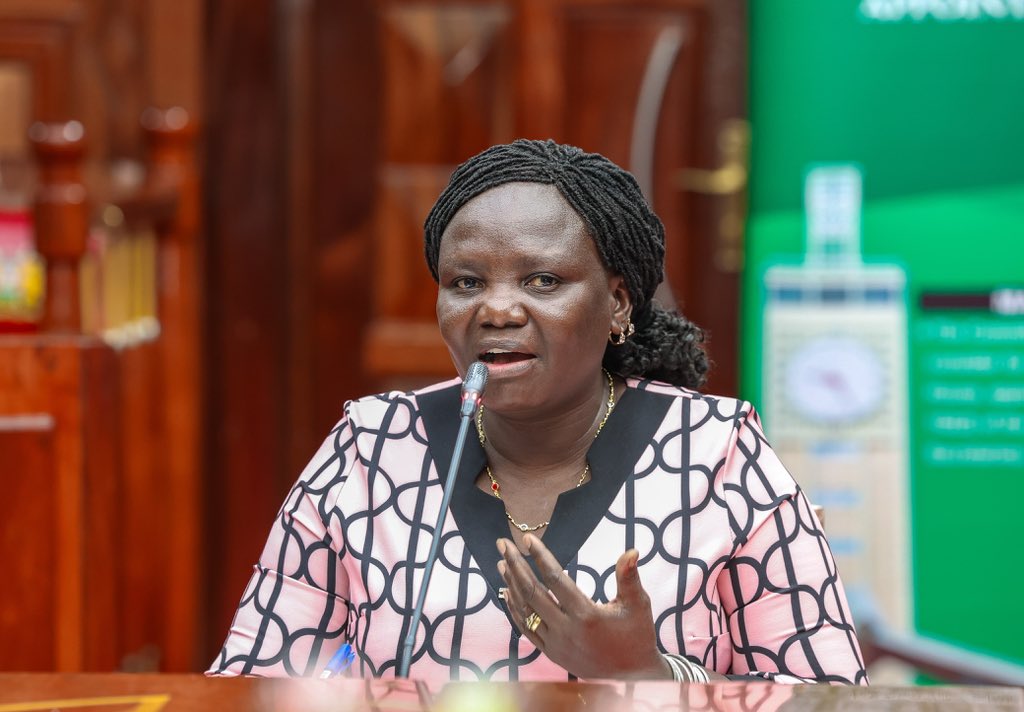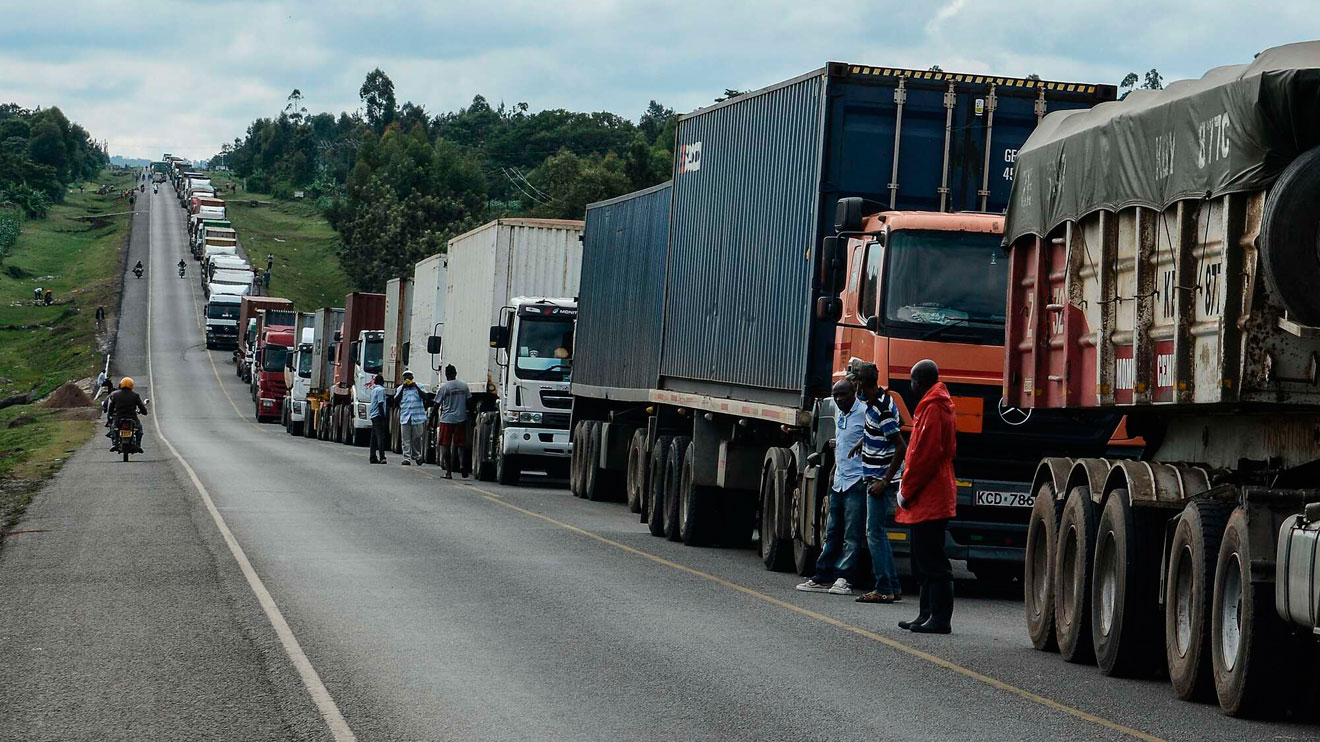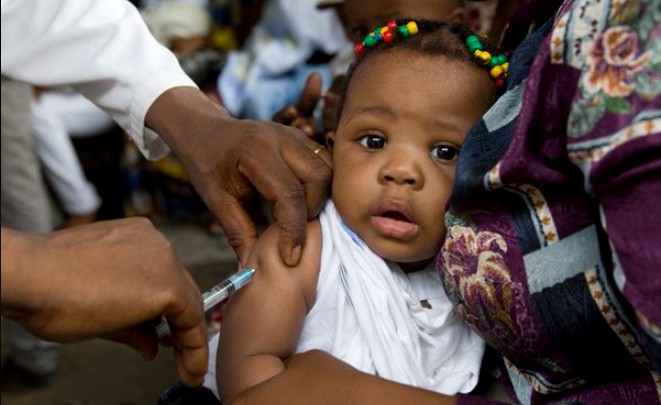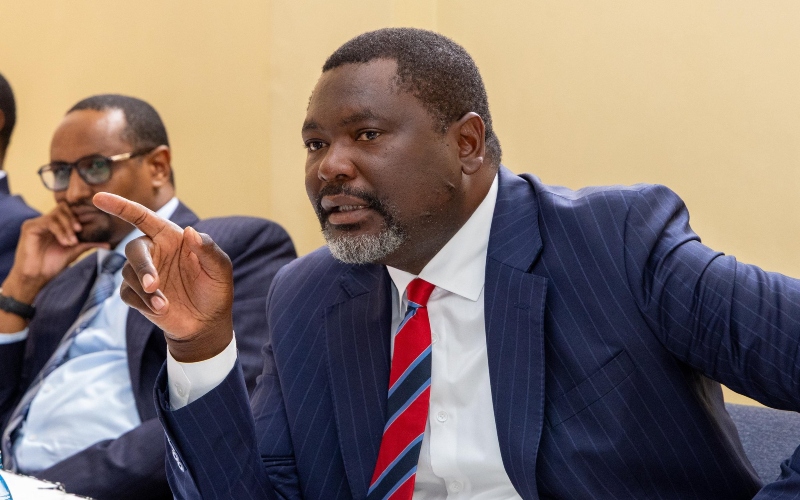EAC Cabinet nominee Askul Moe outlines strategy to combat floods and drought

During her appearance before the Committee on Appointments, Moe was questioned about her strategies to address the challenges posed by extreme weather conditions, particularly the loss of lives during heavy rains and drought.
Beatrice Askul Moe, the nominee for the East African Community, ASAL, and Regional Development Cabinet Secretary position, has proposed several initiatives to improve water harvesting and safeguard Kenyans from the devastating effects of floods and drought.
During her appearance before the Committee on Appointments, Moe was questioned about her strategies to address the challenges posed by extreme weather conditions, particularly the loss of lives during heavy rains and drought.
More To Read
- Gender CS nominee Hanna Cheptumo says women killed in Airbnbs were after money
- Watch: MPs vet Gender, Culture and Arts CS nominee Hanna Cheptumo
- Public Service CS nominee Ruku proposes splitting of TSC powers to curb graft
- Nakhumicha rejects claims of Gachagua’s involvement in Sh3.7 billion KEMSA tender scandal
- National Assembly resumes sitting with focus on vetting of Ruto’s nominees, tax amendment bills
- President Ruto's cabinet nominees face MPs for vetting today
Chair of the Committee Moses Wetang'ula posed, “What will you do so that those streams don’t become a constant nightmare for our country? When there is drought we die, when there is rain we die?”
In her response, Moe outlined her plan to implement sustainable water management practices. She emphasised the importance of harvesting rainwater rather than letting it flow away. Moe also stressed the need for alternative survival strategies to prepare communities for adverse weather conditions.
“If approved by this Committee, I will focus on sustainable measures for water harvesting and seek alternative means of livelihood. Utilising early warning reports will help prepare our people to mitigate the impacts of extreme weather. We must avoid waiting for thousands of cattle to perish before delivering relief food. I propose working with all relevant partners to devise comprehensive solutions and mobilise resources to prevent loss of lives and reduce the effects of disasters and droughts,” she said.
She reiterated that her proposals aim to enhance community resilience and ensure better management of water resources to safeguard lives and livelihoods in Kenya.
Moe suggested incorporating dry region populations' concerns into national policy talks as a means of addressing marginalisation and fostering climate resilience.
“We need to incorporate the arid lands, their policies, and people into negotiations so their issues are raised effectively and influence policy at the Ministry headquarters,” she said.
Moe further highlighted that pastoralists are particularly vulnerable during drought, suffering significant losses in livestock and economic activities.
“They lose animals and their livelihoods are severely impacted. By including them in the Ministry's broader planning, they can contribute their firsthand knowledge, receive better attention, and obtain solutions to help mitigate the effects of drought,” she explained.
Moe also emphasised the need for support systems that allow pastoralists to continue living in their regions, as these areas are their homes and they have a deep understanding of the local environment.
Top Stories Today














































